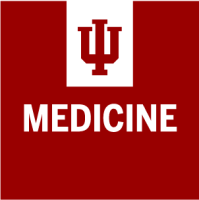The Pediatric Hematology/Oncology/Stem Cell Transplant Fellowship at Indiana University School of Medicine prepares trainees for clinical practice and academic research. The three-year ACGME-accredited fellowship accepts two fellows a year with the goal of training physicians competent in all aspects of diagnosis, treatment, and management of patients within hematology, oncology, and stem cell transplant. Fellows are given progressive autonomy throughout the trajectory of their fellowship to manage their individual panel of hematology and oncology patients. Additional fourth year training opportunities exist beyond the three-year curriculum based on the fellows individual interests (stem cell transplant/immunotherapy, neurofibromatosis, etc).
We encourage our fellows to take opportunity of the range of experiences offered through specialty clinics in hematology and oncology. First year is focused on immersion in clinical care, whereas the second- and third-year fellows devote their time to scholarly activities that range from bench to bedside as well as education and informatics.
Riley Hospital for Children is a comprehensive, freestanding children’s hospital located in downtown Indianapolis. The hospital services the entire state of Indiana as well as bordering regions of Michigan, Illinois, Ohio and Kentucky. Fellows train at Riley Hospital for Children at IU Health in Indianapolis, which treats approximately 300 new oncology patients annually. Riley is also home to the only pediatric stem cell transplant (SCT) and immunotherapy program in Indiana, which performs approximately 60-70 cell infusions per year. Emphasis is placed on learning the range of indications for stem cell transplant/immunotherapy, donor selection, methods of stem cell transplant, clinical and experimental cell therapies, complications and outcomes. Fellows are exposed to clinical apheresis, human leukocyte antigen typing and the stem-cell therapy laboratory.
Our mission is to train pediatricians to excel in the care of cancer and blood disorders, while fostering and supporting their individual passions and pursuits within the field.







